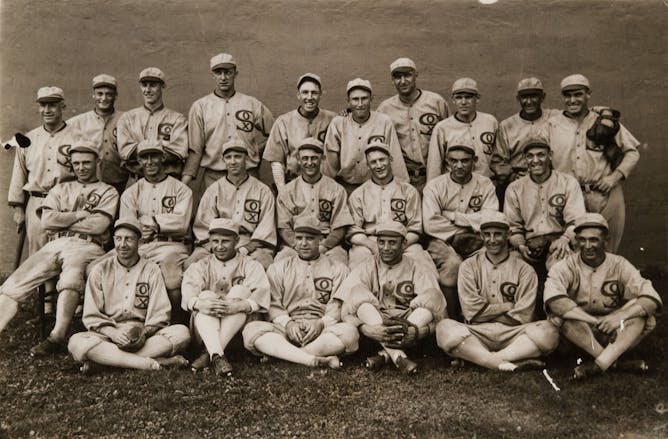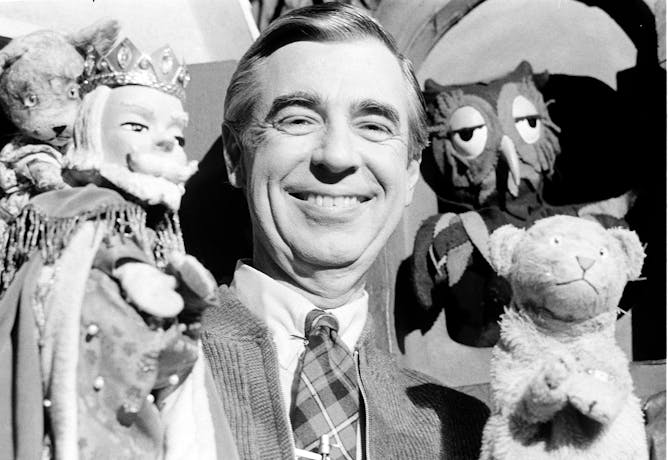
A team photograph of the 1919 Chicago White Sox squad, many of whom would be implicated in throwing that year’s World Series.
Heritage Auctions
Rebecca Edwards, Rochester Institute of Technology
Up until the 1919 Black Sox Scandal, gambling and baseball had a marriage of convenience. A century later, gambling is again being seen as a solution to the sport's woes.
|

Red quantum dots glow inside a rat brain cell.
Nanoscale Advances, 2019, 1, 3424 - 3442
Mengying Zhang, University of Washington
These tiny nanoparticles might provide a new way to see what's happening in the brain and even deliver treatments to specific cells – if researchers figure out how to use them safely and effectively.
|

Fred Rogers rehearses with some of his puppet friends in Pittsburgh,.
Gene J. Puskarg/AP
L. Benjamin Rolsky, Monmouth University
A new film on beloved children's television icon Fred Rogers hits theaters next month. Rogers' moral values contributed to the power and appeal of his neighborhood.
|
|
-
Mary-Hunter McDonnell, University of Pennsylvania
The National Basketball Association's difficulty dealing with a tweet in support of Hong Kong protesters shows the challenges of having values and expanding into new markets.
-
Lisa Schulte Moore, Iowa State University
Investing in farming methods that improve lands and water, and in rural infrastructure and markets, could bring new prosperity to agricultural communities.
-
Martin Abel, Middlebury
Women in the workplace face discrimination at every level, including in upper management.
|
|
|
|